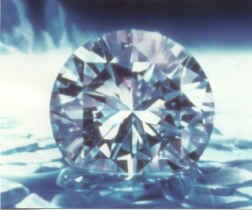Gemmology

The analytical skills offered by the Customs Chemical Laboratory in Rome have recently been enhanced with the addition of a much-needed gemmological sector. This was necessary in order to effectively combat the phenomenon of the fraudulent importation of gemmological materials, and also to offer a public certification service. The new gemmology department is dedicated to the analysis of all precious stones, from diamonds to coloured stones, pearls, corals, ivories, etc. For this purpose, it has been equipped with cutting-edge scientific instruments, in addition to the traditional ones, such as ultraviolet and infrared spectrophotometers, Raman microprobe, X-ray spectrometer, etc. This equipment makes it possible to distinguish each kind of gem, and also provides an unequivocal identification in order to distinguish between natural, synthetic and treated stones.
An active executive analysis and monitoring apparatus has been set up to deal with the various situations, of a fraudulent nature, which occur at airport border crossings: erroneous or false declarations to Customs, attributions of commercial value that do not correspond with the real type of goods, contraband, etc. It should be emphasized that the importance of the fight against fraud lies in the fact that such criminal actions cause serious harm to honest producers, importers, traders and, moreover, cause diversions of commercial traffic and distortions of competition, creating in operators a loss of confidence in the internal market and leading to a drop in investment, which, consequently, directly affects the reduction in the number of jobs offered by businesses.
Moreover, the effects also concern the protection of consumers, when we consider that they may run into various – but frequently fraudulent – situations, as in the actual cases of synthetic rubies which have been treated in such an amateurish way as to release the dye by simple cleaning with alcohol, or synthetic Verneuil rubies with induced fractures, covered with flux, characterized by excellent colour saturation and remarkable transparency, with the overall appearance of truly impressive “natural” rubies. Given these significant situations, it is clear that it becomes necessary:
- to sensitize consumers and commercial operators about the dangers they may incur, both to protect the market and because they could become victims of fraud;
- to promote training for operators in the sector, at every level of the supply chain, from the importer to the retailer, by carrying out mini informative courses, of a monographic nature, in order to provide the necessary elements for an initial qualitative assessment;
- to spread the need to request a gemmological analysis certificate for each material treated, in order to determine a sort of "traceability", similar to that in the food sector with the rules on labelling;
- and, above all, to identify the legislative instruments which make it possible to enforce the rights of honest operators and the legitimacy of the interventions and actions implemented by the Authorities present in the area (Customs, Guardia di Finanza, Police Bodies , Ministry of Industry, Commerce and Crafts, etc.) and, as much as possible, strengthened with the collaboration of professional organizations (Chambers of Commerce, Trade Associations, Federations), through a mutual exchange of useful information, to safeguard a market of fundamental importance for the development and promotion of “made in Italy”, and also with the aim of radically contrasting the spread of illegal phenomena linked to fraud.
In view of the above, the main services provided by the Gemological Department of the Customs Chemical Laboratory in Rome are as follows:
Gemological analysis
This type of analysis involves a series of tests, performed with traditional and state-of-the-art instruments, the final result of which contributes to the issuing of a complete gemmological analysis. Upon request, the Laboratory can seal the stones in a special plasticized packaging, containing a microfilm of the original certificate, which guarantees the customer the perfect correspondence between the stone and the gemmological certificate.
Gemological verification
Document referring to a partial analysis, which is carried out when it is not possible or advisable to perform complete analyses (for example, in the case of gems set in jewellery). In any case, the gemmological verification leads to a sure assessment.
Technical expert appraisal
Examination run on a jewel in order to identify a series of parameters (analysis of gemmological materials, type of materials and processes used, etc.) that characterize it from a constructive and aesthetic point of view.
Valuation report
Attribution of a value to a jewel, formulated through a technical appraisal parameterized to real market conditions. In the case of a commercial valuation, the value attributed will be that referred to the retail sale. On the other hand, in the case of an asset valuation, the value will be related to the first marketing level (it takes into account the value of the materials plus the costs of recovering them).